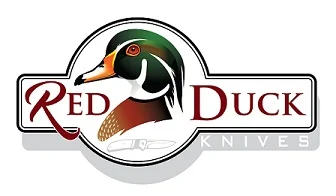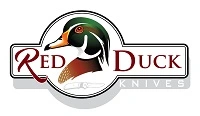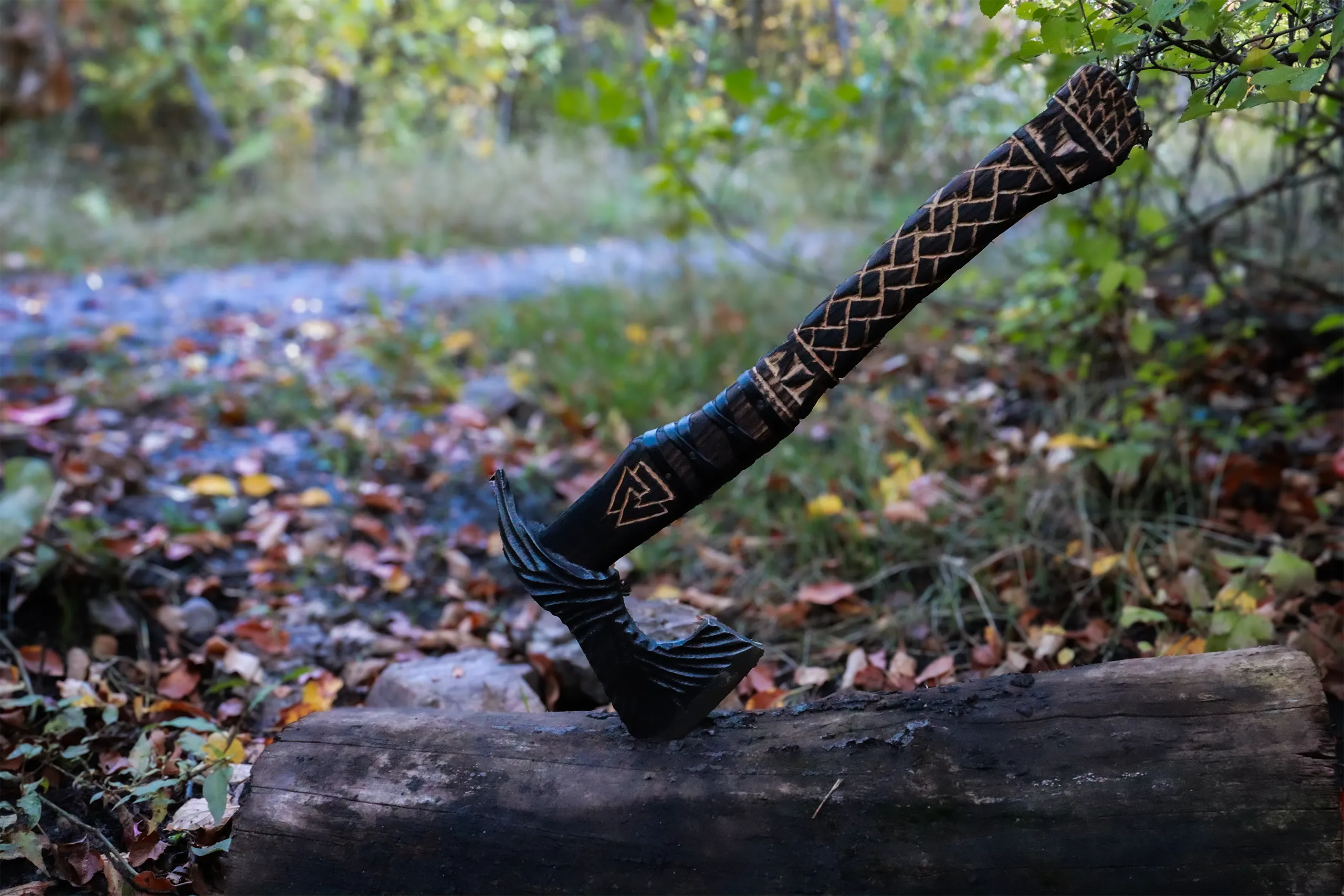Artisans of long ago created Genuine Damascus blades using unique ore deposits found only in India and an ancient but undocumented manufacturing process. Unfortunately, this unique ore was entirely depleted by the end of the 18th century. The lack of knowledge of the ore’s chemical makeup and a detailed understanding of the manufacturing process meant that the art of making genuine Damascus blades was lost forever.
Luckily for us, historical research and modern science have resurrected Damascus steel from the graveyard of history. At its most basic level, Modern Damascus steel is a unique form of steel featuring alternating light and dark grains within multiple layers of material (steel, iron, and assorted metals) with various carbon content levels. These materials are layered together in multiple configurations, then forge-welded to form a billet (a semi-finished product). The term “Damascus,” used widely in today’s market, describes “modern forged-welded steel” blades.
The “wavy” pattern in the Damascus knife blade will vary depending on the makeup of the billet and the frequency of the forge-welding, folding, and twisting processes performed on the billet. Once a desired “wavy” pattern is created, the product is hammered and ground into the desired blade shape.
The next step is quenching, increasing the blade’s hardness (its ability to maintain a sharp edge) by reheating the knife and immediately putting it in oil or water. This process varies depending on the materials utilized, the quenching solution employed, and the reheating temperature used.
After extracting the blades from the quenching solution, the blade is reheated for a few minutes and then soaked in a weak acid solution. This process of acid soaking is called pickling. Pickling brings out the natural patterns of the material layers in the blade. Pickling is not acid etching. Acid etching creates artificial wavy patterns in a regular blade surface by “burning” the surfaces with a strong acid. Laser etching is also used to artificially create wavy patterns in regular knife blades. (Unscrupulous manufacturers use both etching processes to produce fake Damascus knife blades).
One of Red Duck Knives’ founding principles is to provide our customers with the highest quality, modern Damascus blades. We accomplish this goal by partnering with the finest knife-making family clans in Pakistan. Their consistent techniques passed down through multiple generations, outstanding artistry, breadth of products, and overall integrity makes supplying such world-class products inspiring and rewarding.


